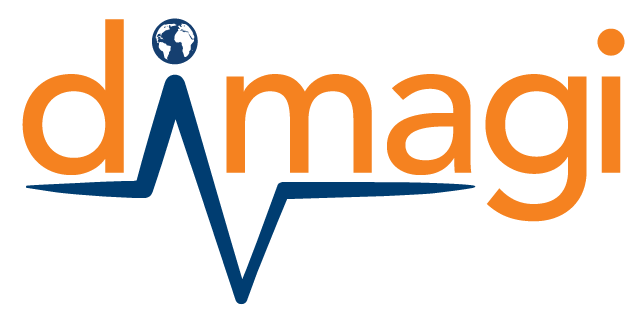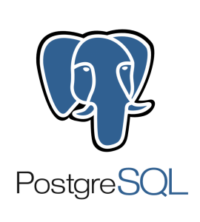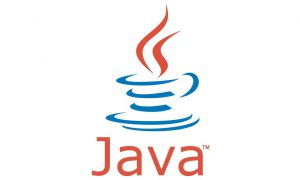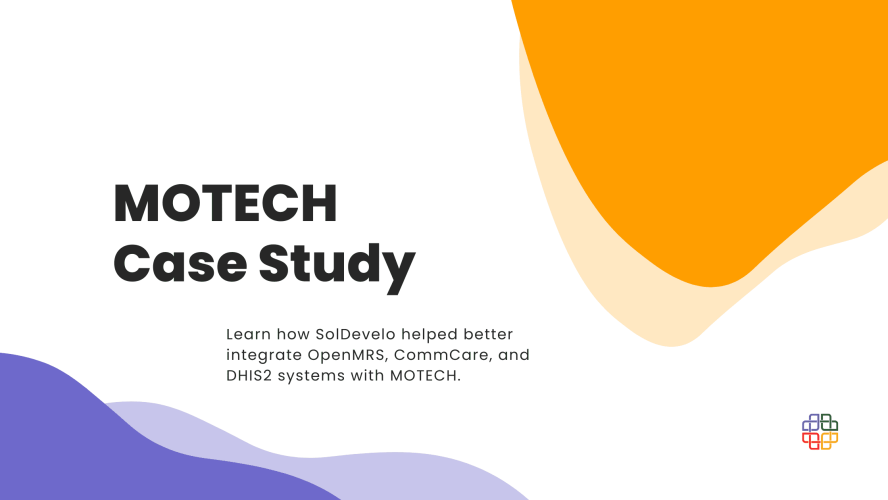“SolDevelo provides tireless, effective, full-service development and is one of the best groups I’ve worked with.”
Emily Tucker
Director, Product Management, Grameen Foundation
These inspiring words serve as motivation for us to constantly grow and improve, always giving our 100%. But there is something that motivates us even more, and these are the ones, whom we could help during our journey as a non-profit organization. This includes people from a variety of backgrounds, with different struggles and challenges that needed to be taken care of. A diversity of problems that required a diversity of solutions. All of this to make an impact and to bring social change to this world. To live up to this mission, we’re committed to our work and we’re committed to the wellbeing of humanity both as a whole, and as every single person that needs help.
In this article we’ll introduce you to one of the stops on our long journey – an application that saves the lives of mothers and children in Ghana and other least developed countries.
Our Clients

Grameen Foundation, based in Washington DC, was founded in 1997 to increase the access of poor people to microfinances. The aim is to provide them with tools and resources that they need to fight with poverty. It brings a mix of financial services – loans, savings, insurance – to the rural poor. It also connects farmers to markets, helps them grow more high-value crops, and enables them to demand better prices.

Dimagi is a for-profit social enterprise based in Cambridge, Massachusetts that delivers open-source software technology suitable for low-resource settings and underserved communities. The company designs clinical interfaces, health information systems, and mobile technologies to perform patient-level disease management, clinical decision support, and health system monitoring.
Both of these clients turned to us for our support in improving the living conditions in the least developed countries. To achieve that, we worked on improving the MOTECH platform.
But what actually is MOTECH?
The Mobile Technology for Community Health Project platform is an open-source software package that connects popular mHealth technologies in order to strengthen developing health systems. MOTECH was deployed across the globe in numerous health domains, improving maternal and child health, treatment adherence, frontline worker education, and information collection.
Inhabitants of impoverished countries face many fundamental challenges, like a limited access to water or food. However, that doesn’t necessarily mean that they’re completely cut off from technology. A lot of people from smaller and bigger villages do have mobile phones. It makes it possible for platforms such as MOTECH to reach the local communities and contribute more significantly to the health and wellbeing of those in need.
SolDevelo already worked with Grameen Foundation on other projects in the past (e.g. Mifos). Thanks to this, we got involved in the MOTECH platform sometime around early 2012 and we are still contributing today.
Our input…
In order to provide comprehensive mHealth solutions, we introduced many changes related to, above all, MOTECH’s integration with the OpenMRS, CommCare, and DHIS2 systems.
We implemented new solutions designed to refine the functioning of the Tasks module, which currently acts as an intermediary system between Commcare, OpenMRS, and DHIS2. Improving the way MOTECH integrates with external systems was one of the priorities for the Dimagi implementations in Mozambique and Nepal. We also focused on UI and performance improvements in order to make the system more accessible for the end-user.
By improving the quality of integration of the modules, our team streamlined the functioning of the MOTECH platform. Enhanced data exchange between the modules significantly facilitated the work of healthcare employees in the developing countries.
Through many years of our participation in this program, dozens of SolDevelo developers were involved in the MOTECH project, sharing their knowledge and using their skills to help in making social impact.
Our impact…
Our hard work on the MOTECH platform made its appearance in the BBC News and TVN24 BiS! This is how our impact was highlighted:
According to the World Health Organization, a few decades ago Ghana used to have one of the highest death rates of mothers and children during childbirth than any other place in the world. Thanks to continuously improving conditions of living and efforts to develop local healthcare systems, the situation in Ghana is slowly, but steadily getting better.
For example, between 1990 and 2013 maternal mortality (MMR) fell by 49 percent. In 2013 there were 331 deaths per 100,000 live births.
Ghanaian society tends to believe in various superstitions. It sometimes threatens the safety of children. In addition, most mothers are illiterate, so despite the fact that midwives or doctors write down the date of their next appointment, they can’t read it.
The mobile midwife gives hope
The “mobile midwife” application is dedicated to help in changing mothers and children’s situation in Ghana. The system adjusts the proper diet, and also advises when to go for real-life advice from a doctor.
“I was supposed to perform an enema while I was pregnant. Messages from the mobile midwife, teached me that this could have led to abortion,” says one of the women that found the application helpful.
“When I was pregnant for the first time, I didn’t know the exact date of delivery and I gave birth at home. The second time the virtual midwife informed me that the deadline was approaching, so I prepared for childbirth and had a chance to give birth in a hospital,” says another woman.
From 2013 to 2017 maternal mortality ratio in Ghana dropped from 331 to 308 deaths per 100,000 live births. Although it’s still considered to be high, the progress is visible not only in numbers, but also in the words of healthy mothers of healthy children. Thanks to our efforts Ghana’s maternal mortality will soon leave the group of high ratio (300-499), and enter the group of low ratio (100-299).
You can watch a fragment from BBC News here:
Sources:
[bbc.com] Joining up Ghana’s healthcare to save lives
[TVNbis.pl] Aplikacja mobilna ratuje życie matek w Ghanie
Technologies used










